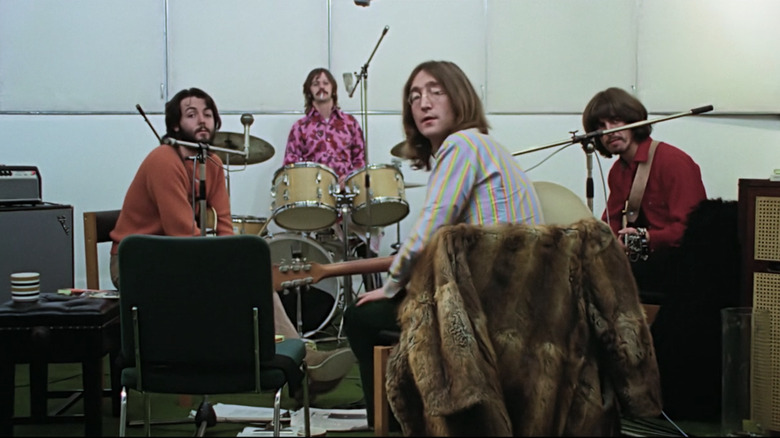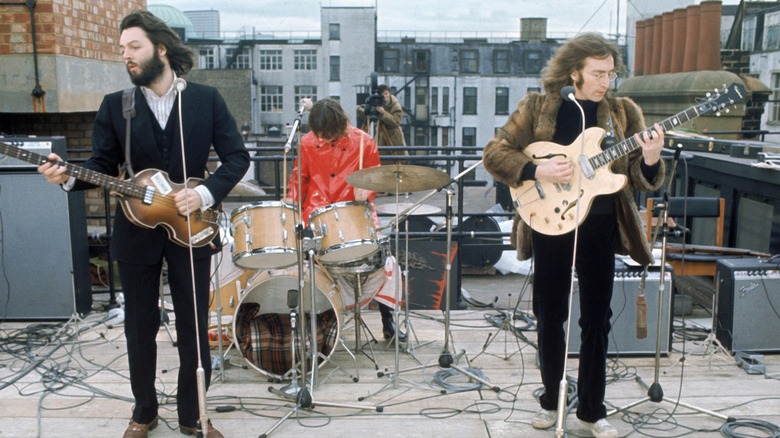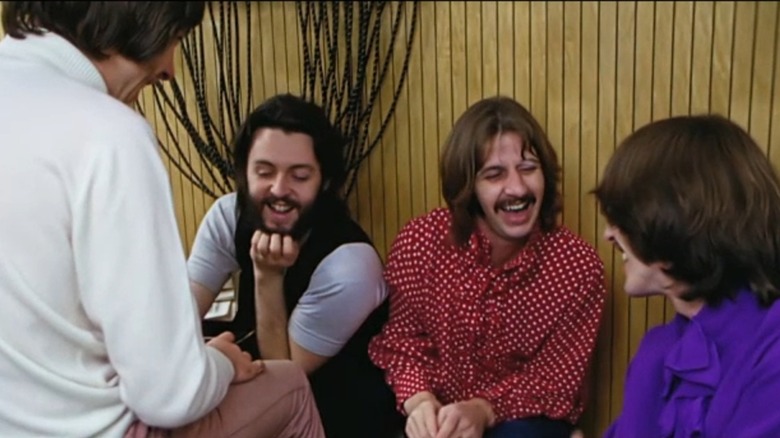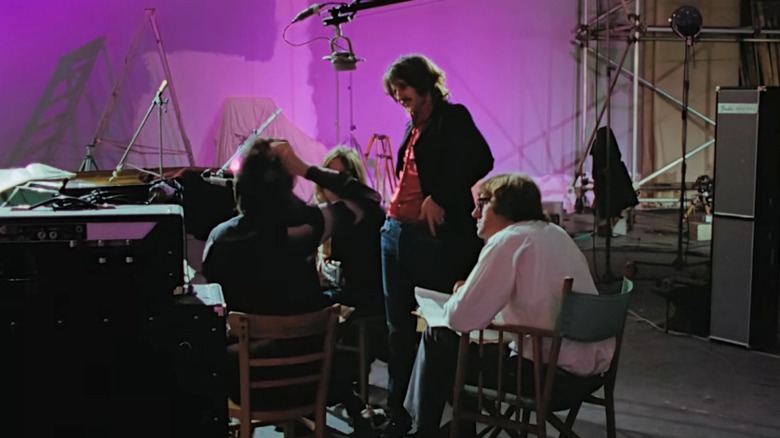The Length Of Peter Jackson's The Beatles: Get Back Is Kind Of The Point
While Peter Jackson's deep dive into the creative process of The Beatles has been getting mostly rave reviews there has been some pushback on its long runtime. "Get Back" was intended to be a long feature and then during the Covid lockdown the decision was made to release it as a limited series on Disney+.
The thing is three parts, each one well over two hours each — and the eight-hour length of the full docu-series has been a sticking point for some critics, including our own Josh Spiegel.
Jokes have been made about Jackson's tendency to go long on his projects, bladders have been tested, and arguments have been waged in favor of a more condensed version of "Get Back"; and while all individual viewpoints are equally valid, I had an instant visceral reaction to that specific criticism.
Love it or hate it, the reason "Get Back" works is because of just how damn long it is.
The Journey Is The Point
Baked into the DNA of this project is its goal to make the viewer feel like they're in the room with John, Paul, George and Ringo, sitting in on these creative jam sessions and observing the most influential rock band's process as a ticking clock brings them closer and closer to their eventual breaking point.
There's a moment in "Get Back" where Paul McCartney is strumming a guitar seemingly chaotically, trying to find some gold. What starts as a jumble of chords evolves into the title song of this documentary and one of The Beatles's most famous hits in the matter of about 75 seconds. It's just the backbone of "Get Back" as we know it, but you can almost hear it click into place. You need to see the struggle and hear the wrong notes, so that when the lads from Liverpool find the right ones you get to witness lightning captured in a bottle.
And I'm aware this is a lot to ask, especially if the viewer isn't a Beatles fan, but we already got the cut-down version of this footage, which is director Michael Lindsay-Hogg's 1970 film "Let It Be," a notoriously haphazard and janky documentary that focuses more on the conflict and less on the creative process.
An Authentic Insight Into the Creative Mind
As someone who has spent hundreds of hours on film sets as an observer, I was struck by how accurate this is to watching the creative process. It's not just seeing the magic happen, it's seeing the lulls in creativity. You almost feel the drag when it sets in and George Harrison starts yawning, John Lennon loses his voice, and McCartney looks like he's about to fall asleep at the piano.
It's crucial to see business meetings interrupt the jam sessions and how that kind of throws the band out of whack for a minute before they find their groove again. That's why "Get Back" feels authentic, not because it shows the band cussing or smoking or figuring out some of the best songs ever written and performed, but because of the mundane life bulls**t that is always trying to detour their creative process.
Arguing with Lindsay-Hogg over where their first live concert in years is going to be held, or meeting with the head of EMI and the dozens of other people that want their attention when they're supposed to be buckling down and knocking out new music is what makes "Get Back" feel so true. The whole point of this thing is to give viewers that fly-on-the-wall perspective, to not ignore the less flattering stuff like McCartney and Lennon bullying Harrison, and Harrison walking away from the group.
I will admit I have a lot of bias here. I'm an easy mark for "Get Back" having grown up on The Beatles in all forms, from collecting all their albums and watching all their movies over and over and over again (this applies to "A Hard Day's Night," "Help" and "Yellow Submarine," less so to "Magical Mystery Tour," although that bonkers movie is absolutely worth a watch).
The Peaks and Valleys of Creativity
So anyway, watching eight hours of new footage and audio of one of my favorite bands isn't a chore for me. It's a present. I'd have happily watched another eight hours.
I do acknowledge that not everybody's a super fan like I am and thus aren't predisposed to enjoy "Get Back" in the same way, but I think even a casual viewer can get something out of this experience. And it really is an experience.
Yes, there's a narrative (the band has two weeks to come up with as many songs as they can, learn them and perform them live for the first time in many years), but that's not the focus here. Maybe it was when the original idea was just to make a long movie, but when it shifted to a streaming series the real goal seems to be to live in the peaks and valleys of the creative process.
That's why you're seeing endless praise from screenwriters, directors, fellow musicians, authors, and all sorts of creative folks. What's knocking them on their asses isn't seeing The Beatles create magic, but how they struggle to do it. At points it seems effortless, sometimes they're stuck for hours and we get to experience that in as close to real time as you can possibly get without a time machine.
Suffering along with their creative roadblocks, getting bored and tired with them, feeling the stress of a due date marching closer and closer, and experiencing their euphoria as they push through all the bickering and business to create iconic work that will outlast us all is the magic of "Get Back." It's the journey. And while it's a long one, I wouldn't give away a single minute of it.



